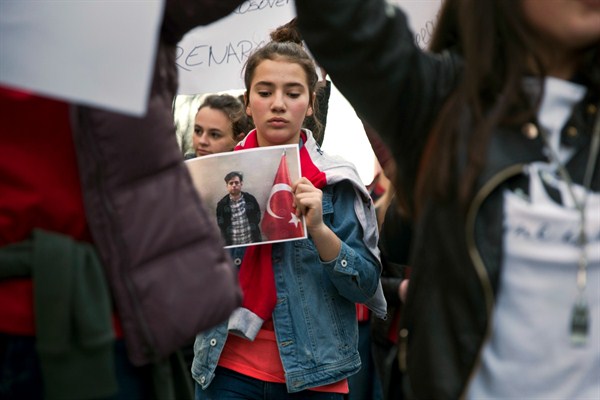LIPJAN, Kosovo—On a Thursday morning in March, Yasemin Karabina and her husband, Yusuf Karabina, both Turkish nationals, awoke at the usual time and headed to work in this town 10 miles south of Pristina, Kosovo’s capital. Yasemin taught Turkish to high school students at Mehmet Akif College, while Yusuf served as deputy director of the Gulistan Educational Institution, which is in the same building. The couple, who have been married for more than 20 years, were in the habit of driving to and from work together. Their teenage son, a student at Mehmet Akif College, rode along in the back seat.
On this particular day, however, their commute was cut short when they were pulled over. Two men posing as police officers approached the Karabinas’ car and demanded to see their identification. Hearing the men’s Turkish accents, Yasemin surmised that they were not local officers but rather Turkish intelligence agents. She immediately feared the worst.
Both Mehmet Akif College and the Gulistan Educational Institution are part of the Gulenist movement, an opaque collection of various entities, notably schools and charities, led by Fethullah Gulen, a Turkish Muslim cleric who lives in self-imposed exile in Pennsylvania. Turkish President Recep Tayyip Erdogan sees the movement as a terrorist organization, and blames Gulen for masterminding the failed coup attempt in Turkey in July 2016, something Gulen denies. The United States has repeatedly rebuffed Erdogan’s demands to have him extradited.

